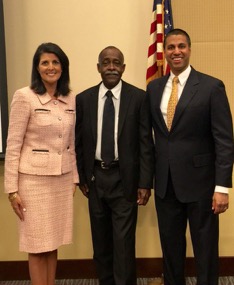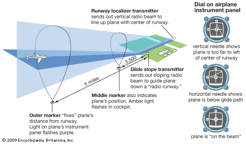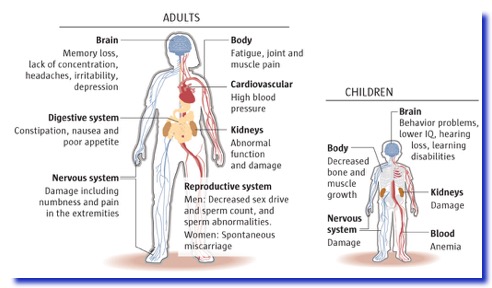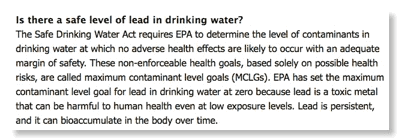Some Spectrum Policy Issues Are Not Economic But Really Life or Death Ones
But the statement was a learning experience. Much of what FCC does is really "economic regulation":
- it affects how much income licensees and regulated entities such as carriers can earn,
- it affects the division of spectrum among industries which indirectly affects their profitability,
- it deals with who can own certain types of licenses and how many of those licenses they can own,
- it affect inter service interference which also affect profitability, etc.
For the purpose of regulating interstate and foreign commerce in communication by wire and radio so as to make available, so far as possible, to all the people of the United States, without discrimination on the basis of race, color, religion, national origin, or sex, a rapid, efficient, Nation-wide, and world-wide wire and radio communication service with adequate facilities at reasonable charges, for the purpose of the national defense, for the purpose of promoting safety of life and property through the use of wire and radio communications, and for the purpose of securing a more effective execution of this policy by centralizing authority heretofore granted by law to several agencies and by granting additional authority with respect to interstate and foreign commerce in wire and radio communication, there is created a commission to be known as the "Federal Communications Commission", which shall be constituted as hereinafter provided, and which shall execute and enforce the provisions of this chapter.
So safety issues should be deep in FCC's DNA. The creation of the Public Safety and Homeland Security Bureau on 9/25/2006 was a positive attempt to get public safety issues away from the main industry focused bureaus of FCC that in many respects like most regulators were captured to some degree by the commercial entities they regulate. Hence WTB was really unable to resolve the long standing NEXTEL/public safety interference issue of the late 1990s and it was only resolved when Nextel came in with a "deal" that public safety entities were willing to agree with - whether or not it was really in the public interest.
(There is an oral tradition in the FCC staff that an engineer of WTB's predecessor was concerned about the possibility of such interference and pressed for protection of public safety as a condition of the original Nextel waiver that permitted their Part 90 licenses to be used for cellular-like technology. However, this was overruled by higher level managers who were focused on the issue of increasing competition in the cellular industry. Hopefully with the creation of PSHSB such decisions will not be so one-sided in favor of commercial interests.)
But there are a few ongoing spectrum policy issues that are really related to life or death issues and that the Commission is not resolving expeditiously. Here are some of them:
Texting & driving. CDC states "Each day in the United States, over 8 people are killed and 1,161 injured in crashes that are reported to involve a distracted driver." While FCC has a webpage entitled "The Dangers of Texting While Driving" and another entitled "Distracted Driving", what is it really doing to decrease the number of deaths associated with this use of FCC licensed technology? Is FCC really paying more attention to CTIA's desires on this issue than on the overall public safety issue? How often are senior FCC officials talking about the death toll resulting from this misuse of radio technology? FCC held a "Distracted Driving Technology Showcase" in April 2013. What has been the progress of implementation of such technology on either a voluntary or mandatory basis? NYTimes recently had a discussion on this issue, but is FCC actually doing anything?
Capt. Robert Johnson (Ret.) SCDC, shot 6 times
as a result of an order given over a contraband
cellphone, with Gov. Haley & Comm. Pai.

Use of contraband cellphones in prisons. This is the subject of Docket 13-111. Note the first 2 digits are "13" indicating that this NPRM was issued in 2013, actually 3 years ago this week. But this NPRM was in turn based in part on a petition filed by the South Carolina Department of Corrections in July 2009 which was never even put out for public comment. (This explains why the NPRM cryptically refers to the SCDC petition by the mysterious code "PRM09WT" rather than the usual RM number.) But the CTIA-favored approach of "managed access" and continuing the absolute prohibition of any jamming by nonfederal users is basing all progress on a quixotic technology. Meanwhile real people die as a result of crimes ordered by incarcerated criminals. Can't FCC give the cellular industry a date certain to show whether managed access under their preferred approach and conditions is an adequate solution for this life or death issue?
Aviation Tower Marking and Lighting Enforcement: One of the more bizarre statements in the nearly $1M study FCC ordered to justify downsizing field enforcement that has never been formally released (but a leaked version was first made available on this blog) is shown below:
Since tower inspection compliance is good, it can be cut back significantly the consultants reason. But tower lighting and marking issues are different than most other FCC compliance issues like frequency and power regulation. As the Coinjock NC helicopter crash incident dramatically showed major screwup can result in multiple deaths. This different than interference which is typical of most Title III technical violations.
Instrument Landing System (ILS)

FM Pirate Interference to Aircraft Navigation: As we have written previously, the FAA's Instrument Landing System has its "localizer" (left/right determination) signal just above the FM broadcast band. ILS receivers have some sensitivity to interference resulting from overloads of two signals that have a certain relationship to the ILS channel used at a given airport and another local FM station. In normal FM licensing this is considered and the threatening frequency is not allowed near an airport. But illegal FM stations do not go through normal licensing! And if the mathematical relationship with another FM station and the ILS frequency is correct, not much power is needed to create interference if the other FM station has a strong signal near the airport. So downsizing enforcement without leaving an alternative mechanism to address this issue is an invitation to aviation safety issues.
Public Safety Interoperability: The January 13, 1982 Air Florida crash in the Potomac River was the beginning of a national dialogue on public safety interoperability. The 9/11 tragedy was another milestone.
There have been improvements since 1982, but has it really been adequate. Now there are a lot of agencies involved in this area and Congress has had a key role in starting FirstNet. But FirstNet is not going to make a big dent in the basic problem for this is what its website says:
FirstNet will enhance public safety communications by delivering mission-critical data and applications that augment the voice capabilities of today’s land mobile radio (LMR) networksWhen the FirstNet network is initially deployed, it will provide mission-critical, high-speed data services to supplement the voice capabilities of today’s LMR networks.
So while the broadband capabilities of FirstNet will be interoperable, today's land mobile radio networks in a myriad of bands will be around for the foreseeable future and will continue to serve as a Tower of Babel as in 1982. Does FCC even talk about this issue?
Basic Problem
Most FCC decision do not involve safety issues and they are basically "economic regulation" in the terms of my former colleague. Thus FCC is structured to deal with such issues.
The few issues that are really matters of life and death do not easily fit into this framework and theus don't get the attention they deserve. The FCC's inability to resolve the issues in Docket 13-111 is a classic ongoing example of this problem. Will FCC ever give the cellular establishment a firm time limit for implementing their preferred solution or will people just continue to die because of this ongoing problem? There are other solutions besides the quixotic "managed access". FCC has moved heaven and earth to meet cellular industry spectrum demands for 4G and 5G, when will the industry either act to decrease the prison contraband problem or stop blocking other solutions?
FCC's 1980's Flint-like Lead Issue

A reliable source in the Office of the Managing Director, knowing that I was the victim of their bosses' efforts, told me in the mid 1980 that FCC tested the lead levels in water coolers in its various buildings near the corner of 20th and M St., NW and found that the lead levels in the main FCC building at 1919 M St. exceeded a new EPA regulation that would be going into effect.
What did FCC do?
- Provide lead free water to all staff members?
- At least provide it to all pregnant staff members?
- Advise the staff of the issue so they could make their own decisions?

The Office of the Managing Director management swore their staff to secrecy on this issue and proceeded to make repairs to get the lead level down to EPA standards before the new regulations went into effect. Did the Chairman know? Possibly. Did the commissioners know? Probably not.
So you may ask, isn't some level of lead exposure for a small time safe? Here's what EPA says:
This type of cynical attitude towards the FCC staff has been part of FCC's DNA going back decades. While I did not necessarily agree with all of Chmn. Powell's telecom policy positions, he was a welcome breath of fresh air. For example, he restored a reasonable training budget for the FCC staff as a whole, not just a few elite senior staffers and reinstated the master's degree program for Commission engineers that had been unfunded for over two decades.
I suspect because Powell had been a junior military officer and had grown up in a military family he understood the importance of motivating staffers and earning their respect. Most other chairmen in memory came from small organizations and lacked management experience in a 2000 person organization. Typically the chair and commissioners are focused on getting as much done as possible during their terms with little concern about the infrastructure of the organization including its staff. But I must admit that the lead coverup of the 1980s was a new low in FCC mistreatment of its staff.




![Validate my RSS feed [Valid RSS]](valid-rss-rogers.png)

